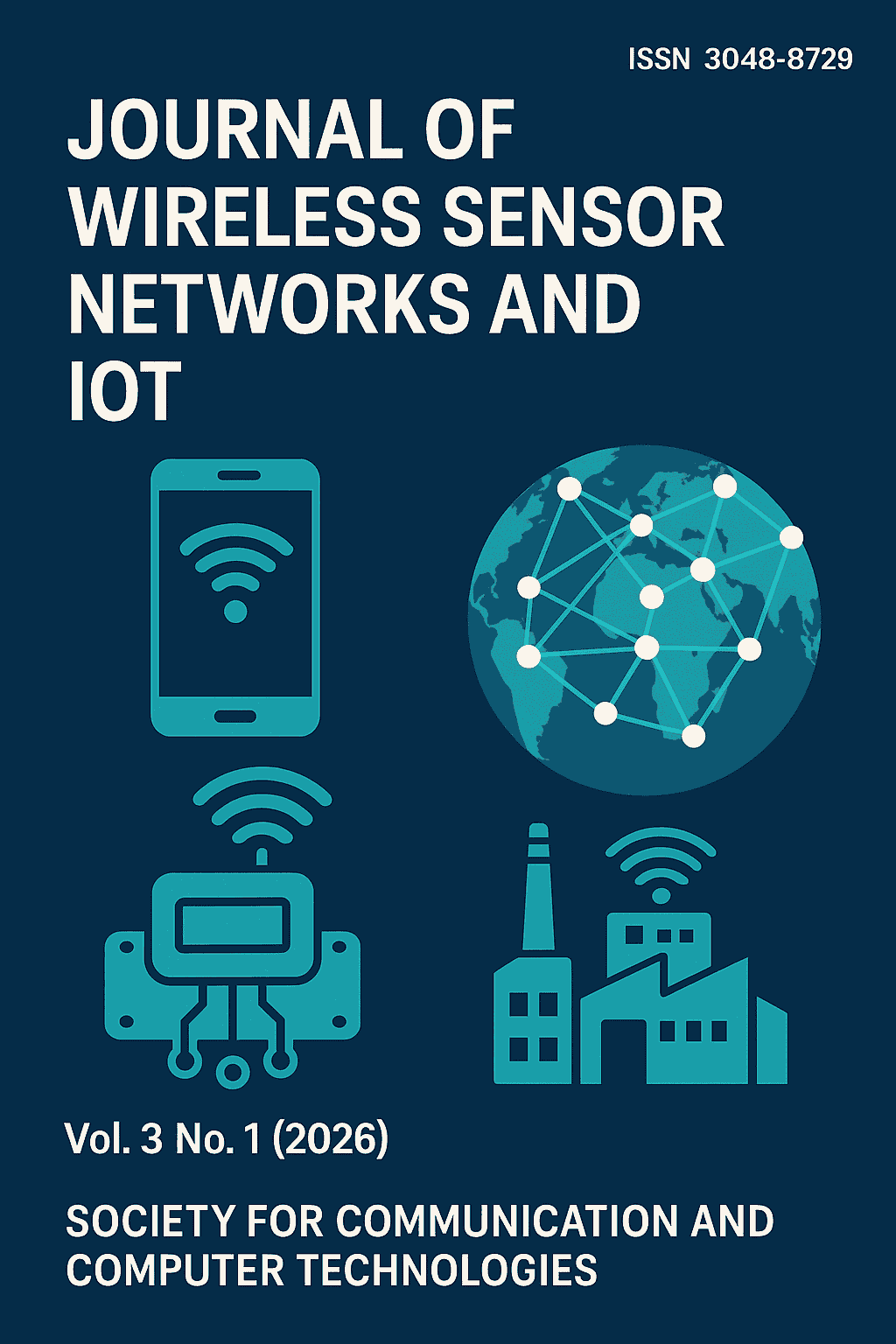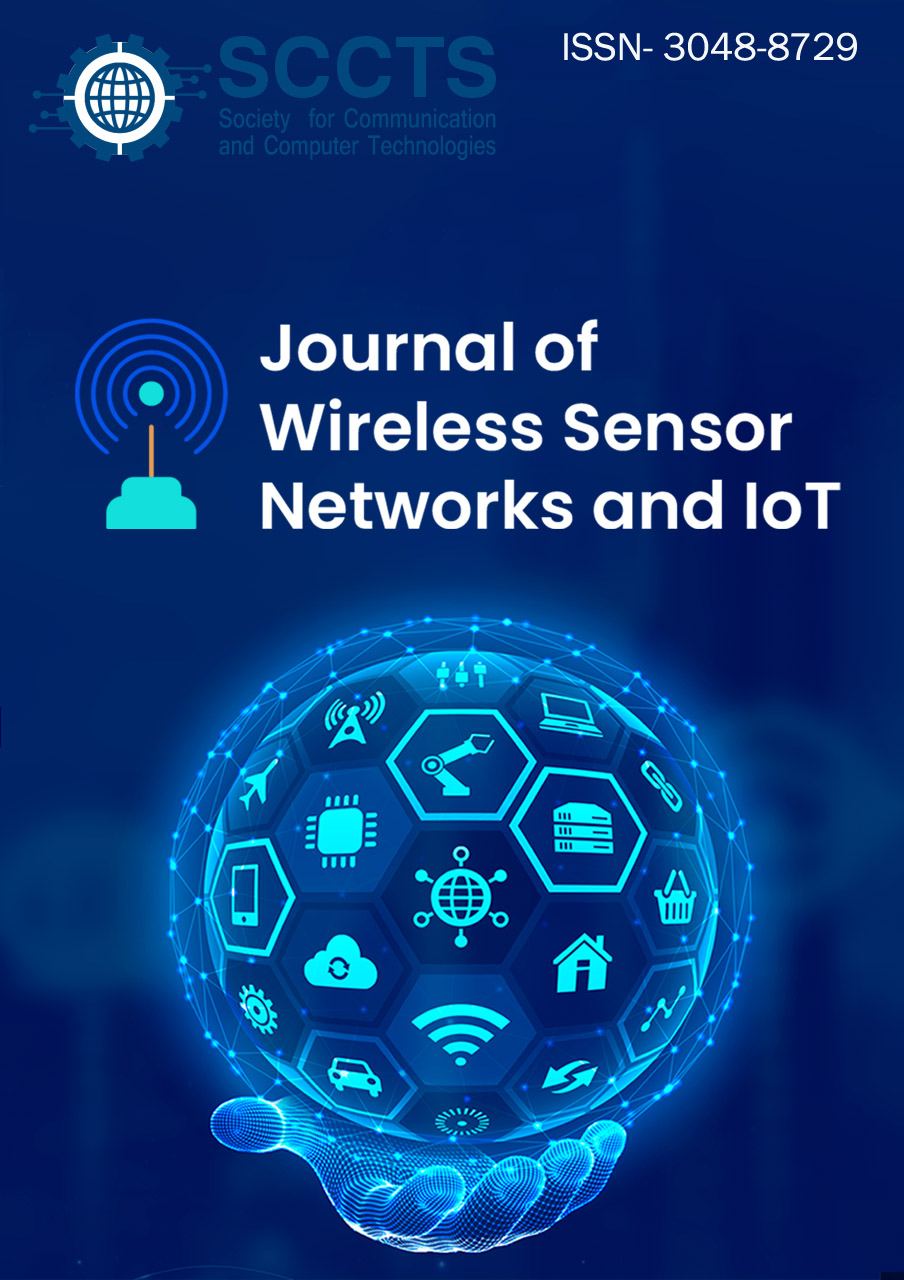Design and Performance Evaluation of Energy-Efficient Routing Protocols for Scalable IoT-Enabled Wireless Sensor Networks in Smart Environments
DOI:
https://doi.org/10.31838/WSNIOT/03.01.02Keywords:
Energy-Efficient Routing, Wireless Sensor Networks (WSNs), Internet of Things (IoT), Smart Environments, Routing Protocols (LEACH, PEGASIS, RPL), Network Scalability, Packet Delivery Ratio (PDR), Network Lifetime, Low-Power and Lossy Networks (LLNs), NS-3 Simulation, IoT Communication Protocols, Smart City Infrastructure, Cluster-Based Routing, IPv6-Based Routing, IoT Optimization.Abstract
The high growth rate of the Internet of Things (IoT) system augmented the demand of energy-efficient and scalable routing protocol in Wireless Sensor Networks (WSNs), most notably in smart infrastructures, urban systems, precision agriculture, and industrial automation. In this paper, the authors are to design and test the performance of three commonly known energy-optimized routing protocols commonly cited in the literature namely LEACH, PEGASIS, and RPL modified to be used in IoT-based WSNs. An extensive simulation model based on NS-3 and MATLAB was designed to rate the performances of each of the protocols in our various simulation parameters such as the energy consumption, packet delivery ratio (PDR), network lifetime, and scalability with dynamic node density. The findings reveal that RPL has better network scalability and network stability with more than 95 percent PDR in densely deployed networks and supports increased node uptime. LEACH is not scalable, but applies a cluster-based architecture to achieve competitive energy efficiency in terms of small networks. The PEGASIS has satisfactory performance in moderate-density situation with low transmission overhead. These results give desirable design recommendations in choosing optimum routing protocols that match requirements of the IoT applications. This study has been able to help in the development of sustainable and high-performance WSN architectures to facilitate the further usage of intelligent and energy-aware IoT solutions on real-life smart environments.






